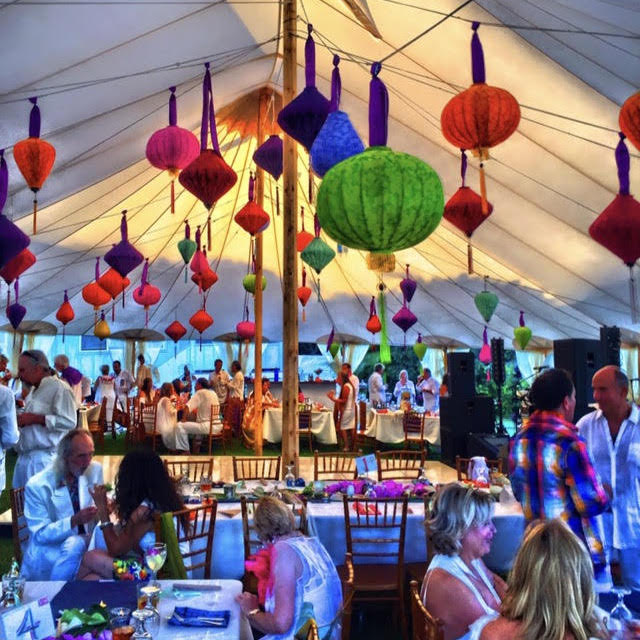“Can we just sneak away from this wedding, go over in the back and kiss, maybe make out?” he said. “I want to kiss you.”
I stared at his handsome face, taking in his delicious smile. I had met this man only 10 minutes before. Perhaps, when I was younger than my now “middle-aged” self and drunk on tequila or wine, I wouldn’t have hesitated to kiss him.
But that day, with one drink in me and my wits fully in place, I was not moved. My body stayed put.
“Hmmm…” I mused, “While you seem quite nice, we’ve just met, and well, it takes me a while these days to want to share physical space with someone—to feel comfortable mashing my mouth against someone else’s.”
I responded flatly but with a twinkle of teasing and compassion in my eye.
He glanced around the room at a wedding of spiritual proportions. The guests, largely yogis and Buddhists, secular humanists, meditators and mindfulness practitioners, made for a vibrant palette. My bindi glittered as the lights and the dancing passed over us.
He dug in.
“I guess I just live in the moment,” he said. “I do what comes up for me in the present.” He looked at me, head cocked slightly as if to say, “If you were living in the present, you would simply drop your hesitation and jump me!”
I stared back at him, curious about the authenticity of this answer, curious about his path and thinking about my own 20-year education in “being present” with countless meditation retreats and dozens of teachers.
Was “being present” somehow eluding me?
Fast-forward to the next weekend. I was on a fourth date with a man I had known for years, but who had just now come forward with earnest to date me. After his unsuccessful attempt to convince me to sleep with him the night before (and me ending up in a twin bed after warding him off), we were working to understand each other’s expectations over morning tea.
“I like to live in the moment,“ he said, “to follow what arises, naturally.”
The words resonated again in my body, causing me to momentarily question myself. Was I stifling the present moment? Had I become prudish? As I dedicated myself more to spiritual practice over time and my party drinking waned, was I unable to connect “in the moment” around sex?
A firm and resonate “no” came back. I was fully present.
I began to really think about this question.
What is living from the present moment, and if I say no to a man’s invitation to make out, does that mean I am somehow thwarting my own deepest desire? If I had been more “present” with my two men, would I have chosen to dive into my every whim, to throw caution to the wind at every turn?
After all, according to them, if I had been in the moment, I certainly would have leapt on them—pounced even—giving into my every urge with a fervor for instant gratification.
Or, were they perhaps misunderstanding what living from the present means, and the concept of “presence” itself?
It’s easy to confuse “living from the present moment” with living from impulse—or from what psychology calls living from the “id.”
According to Sigmund Freud’s psychoanalytic theory of personality:
“The id is the personality component made up of unconscious psychic energy that works to satisfy basic urges, needs and desires. The id operates based on the pleasure principle, which demands immediate gratification of needs.”
The id is that infant-like drive to just “feed” our natural impulses. It is the part of our personality that overrides self-control and works on instant gratification, lust and immediate desire.
I drifted back to my wedding man. I understood his desire, his immediacy and his urge. And it felt like what was coming up for him “in the present.” His feelings and impulses did arise in the present moment, as all things do. But this was more “acting on impulse” than “acting from Presence.”
How do we recognize Presence with a capital P—true Presence versus just our impulses and urges?
1. “Presence with a capital P” has an innate intelligence about it, a wisdom, a built-in integrity.
2. It is less about acting from immediate urges and more about finding a higher awareness that exists in us.
3. It allows one to see the totality of their experience.
4. It hosts empathy and compassion, and a deep ability to sense all things within it.
5. It is palpable and has a strong sense of divinity and discernment in it, and
6. It is different from the id, which is self-oriented, does not have intelligence and acts more from its own “need” than from place of compassion, listening and empathy.
I might call the kind of “living in the moment” that is driven by impulse and urges “presence with a small p.” And as the word presence becomes a larger part of American vernacular, I cringe a little when it is used in such a small way to describe our immediate cravings for cake, or danger or sex.
Presence with a capital P is a felt sense of wisdom and decision-making that comes from the deep intelligence that lives within listening, compassion and empathy.
So, the next time I am invited to explore the “present moment” by a guy with an oversized “id” or a “small p” who wants to make out with me at a wedding, I will stand firm in my connection to what it means to truly be connected to “Presence with a capital P.” I will know that from this place I am firmly rooted in my soul’s ability to make a wise choice.
~
Author: Cari Jacobs
Image: Courtesy of Author (Photo Credit: Denzyl Feigelson); Wikimedia Commons
Editor: Toby Israel
~









Read 1 comment and reply